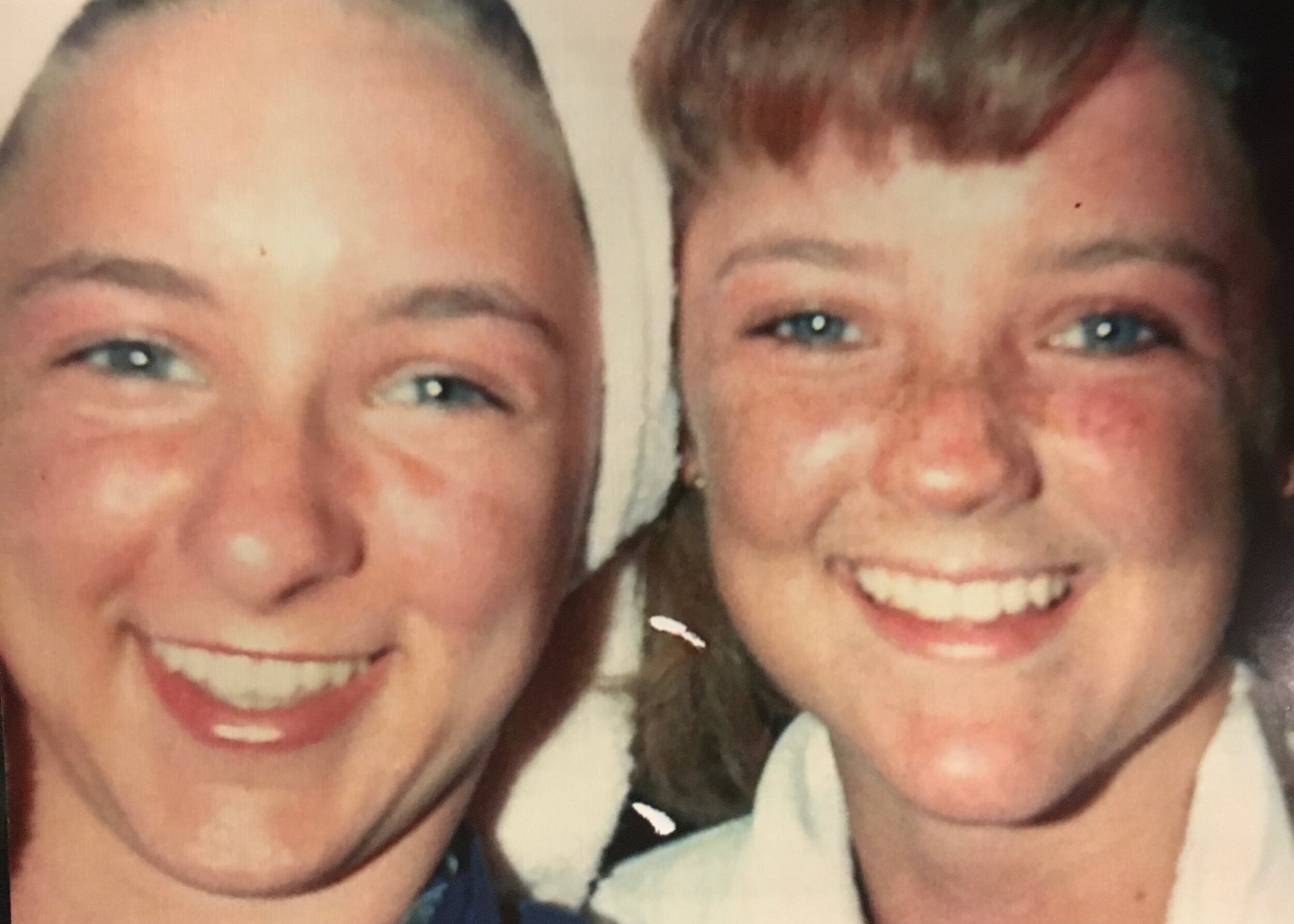Financial Literacy: Part 2
Financially naive Shelly, fresh out of high school, with her beloved Sasster.
When I was a teen, money burned a hole in my pocket. I never really thought much about it, except for what it could temporarily buy me. But the summer after my senior year, I had to begin contributing to college expenses.
My parents were extremely generous to me and my siblings. They agreed to pay tuition and room/board, if we graduated in four years— no more. If we carried a “B” average. And If we earned $2000 every summer to contribute to each of the four years. Spending money would be up to us completely.
And so I got a job. And instantly got real frugal. I worked 40 hours a week at Kings Island, which was more social than work. And I babysat on the side. And what I learned was that it wasn’t that hard to save money. If you just had fun with friends in free ways. I didn’t eat out. Go to the movies. Or do anything regularly that cost actual money. And I noticed that most of my peers who worked did the same.
So when I went to college and was in charge of providing my own spending money. I had already established the habits of NOT spending excessively. I knew the difference between want and need. And I made good choices.
But nowhere along the way did I ever think about long-term savings or investing. And somewhere along the way, I became comfortable in the space of only focusing on needs and not wants. And while I wasn’t losing financial ground, per se. I certainly wasn’t making my money work for me and my future.
Some of the things I did right:
Not getting a credit card. I knew spending more than I had wasn’t a good idea. Especially when considering high interest rates, which I didn’t fully comprehend, but I knew were BAD.
Never getting a bank money card. I couldn’t just withdraw money on a whim. I had to make a conscious plan to actually write a slip to withdraw it. This was key in practicing delayed gratification.
Not running with a crowd who encouraged me to blindly spend without thought or care. My peers were similarly minded.
Honoring my parents’ generosity by adhering to the reasonable conditions they set out. And I graduated debt free because of their gift.
So, in short, I was lucky while getting my financial feet wet. AND I did a few, simple things right. When I graduated college, I was not in a financial deficit. But I also wasn’t sure what to do with the money I would earn. Or how to live any other way than without allowing myself to spend hardly any money. And that’s when familiar family patterns and feelings of scarcity started to creep in. When I was finally “on my own”…

